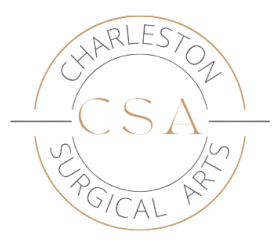HI-DEF LIPOSUCTION
HI-DEF LIPOSUCTION
Hi-Def liposuction is a revolutionary addition to the liposuction procedure. It helps sculpt and define the areas of your body that diet and exercise cannot achieve.
What is Hi-Def Liposuction Surgery?
Hi-Def Liposuction is a process that helps you define areas that you have already sculpted. Using VASER Liposuction, the surgery is a easy and quick method of getting rid of stubborn fat, in the thighs, butt. abdomen, waist, flanks, back, chest, arms, and under the chin. Hi-Def Liposuction surgery at Charleston Surgical Arts is as easy as numbing the area in which you want to have surgery on, disrupting the fat cells, then suctioning the excess fat out for a slimmer, contoured body.
Diagnosis
Initially, to diagnose whether or not liposuction is needed, it is recommended to consult with a specialized cosmetic surgeon. It is important to discuss your wants before the surgery and clarify your doubts or ask any questions you may have. During the initial consult, pre-operative testing, explanation of surgery, care instructions, and certain preparations are shared with the patient.
Areas
Hi-Def Liposuction at Charleston Surgical Arts is opted for removing excess stubborn fat from the body. These areas are areas in which may not be responding to diet and exercise. These areas include:
• Upper arms
• Abdomens
• Chest and back
• Buttocks
• Chin and Neck
• Hips and thighs
How does the procedure work?
Having Hi-Def liposuction is not to remove excessive amounts of fat, dimples, cellulite, or stretch marks; rather, it is aimed for cosmetic purposes only. Hi-Def Liposuction can permanently remove excess fat, therefore altering the contour of the body. The fat cells are disrupted and then then extracted out through the help of a microcannula.
Who needs Hi-Def Liposuction?
Hi-Def Liposuction surgery is appropriate for people experiencing stubborn fat in certain area’s of the body, after diet and exercise has failed to help. Candidates are 18+, in good health and is required to be non-smoking.
Who is not a candidate?
People who have serious health issues regarding blood flow, diabetes, or a weak immune system. If you are taking any form of medications or supplements; or have any allergies you must let your doctor know about them at the time of consult.
Preparing before surgery
Before surgery you will have some testing that needs to be done. Depending on your medical history will determine what test are required prior to surgery.
You Should Know
• Surgery Duration – Most liposuction surgeries take between 1 to 4 hours. The surgery process is done at our practice in an office setting. Certain medications along with local anesthesia will be used for the treating areas. It numbs the applied portion of the body even if with the patient being awake.
• Recovery Time – Depending on the area that is being treated during surgery, the recovery time may vary. Swelling, bruising, and pain may be experienced. However, it all diminishes to normal within a couple weeks. It is recommended to wear a compression garment 24 hours a day for at least the first 3 weeks. Sometimes, there will be temporary drains placed beneath the skin to remove excess fluid or blood.
• Anesthesia- Different forms of anesthesia are included in the liposuction procedure. These include local anesthesia, and certain medications.
• Outpatient Surgery – Our liposuction surgeries are done as outpatient procedures. They are done in an office setting, where the treating doctor will monitor the patient before, during, and after surgery before discharging them to home.
Expectations/ Results after Hi-Def Liposuction
Expect to have some pain, bruising, and swelling after liposuction procedure. You will be prescribed certain medications to help control the swelling and pain. You will also be prescribed antibiotics to help eliminate the risk of infection. However, the pain, swelling, and bruising will subside within a few weeks leaving the area lean, giving you the desired results you are wanting. To keep the results of your liposuction procedure you must maintain a healthy diet and exercise plan.
Risk Factors
Risk factors are associated with the scale of the procedure provided. The risk factors include:
• Inflammation
• Severe bruising
• Contour irregularities
• Thrombophlebitis
• Infections
• Numbness
